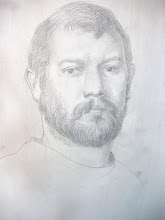
Should you wish to learn about creating art, look with an open heart to those things from which art sprang.
If you disparage painting, which alone can imitate all the visible works of nature, you surely disparage a most subtle device, by its philosophical and formidable reasoning, examines all manner of forms.
...for nature has brought forth all visible things and painting is born of these.
Hence we may rightly call painting the grandchild of nature and related to God.
- Ashburnham I 20v (1492) Leonardo da Vinci
Sit with the trees, lay amongst the flowers, watch the many layers of transparent glass which glide beneath your reflection in the water. The appearance of a thing is not its sum, for the truth of an object is inherent to its whole. Is not an apple still an apple if it is skinned?
Everything speaks, and the artist must give an empatheitc and faithful account of what is said. If art is made without an emotional understanding of what is represented, it will never reach our emotions. But, if it is made with love and reverence, similar feelings will emerge in the viewer... not to the art, but to that which is seen.

